- 全部删除
 您的购物车当前为空
您的购物车当前为空
Ki67/MKI67 Protein, Human, Recombinant (GST)
一键复制产品信息MKI67 contains 1 FHA domain and plays a key role in cell proliferation. During interphase, the MKI67 antigen can be exclusively detected within the cell nucleus, whereas in mitosis most of the protein is relocated to the surface of the chromosomes. MKI67 protein is present during all active phases of the cell cycle (G1, S, G2, and mitosis), but is absent from resting cells. MKI67 is an excellent marker to determine the growth fraction of a given cell population. The fraction of MKI67-positive tumor cells is often correlated with the clinical course of cancer. It is also associated with ribosomal RNA transcription. Inactivation of antigen MKI67 leads to inhibition of ribosomal RNA synthesis. The MKI67 protein is a nuclear and nucleolar protein, which is tightly associated with somatic cell proliferation. Antibodies raised against the human MKI67 protein paved the way for the immunohistological assessment of cell proliferation, particularly useful in numerous studies on the prognostic value of cell growth in clinical samples of human neoplasms. MKI67 protein expression is an absolute requirement for progression through the cell-division cycle. Recently, MKI67 is proved to be an independent prognostic factor for disease-free survival (HR 1.5-1.72) in multivariate analyses studies using samples from randomized clinical trials with secondary central analysis of the biomarker. MKI67 was not found to be predictive for long-term follow-up after chemotherapy. Nevertheless, high KI-67 was found to be associated with immediate pathological complete response in the neoadjuvant setting, with an LOE of II-B. MKI67 could be considered as a prognostic biomarker for therapeutic decision.

Ki67/MKI67 Protein, Human, Recombinant (GST)
一键复制产品信息| 规格 | 价格 | 库存 | 数量 |
|---|---|---|---|
| 5 μg | ¥ 493 | 6-8日内发货 | |
| 10 μg | ¥ 790 | 6-8日内发货 | |
| 20 μg | ¥ 1,330 | 5日内发货 | |
| 50 μg | ¥ 2,580 | 5日内发货 | |
| 100 μg | ¥ 5,170 | 5日内发货 |
产品信息
| 生物活性 | Activity testing is in progress. It is theoretically active, but we cannot guarantee it. If you require protein activity, we recommend choosing the eukaryotic expression version first. |
| 产品描述 | MKI67 contains 1 FHA domain and plays a key role in cell proliferation. During interphase, the MKI67 antigen can be exclusively detected within the cell nucleus, whereas in mitosis most of the protein is relocated to the surface of the chromosomes. MKI67 protein is present during all active phases of the cell cycle (G1, S, G2, and mitosis), but is absent from resting cells. MKI67 is an excellent marker to determine the growth fraction of a given cell population. The fraction of MKI67-positive tumor cells is often correlated with the clinical course of cancer. It is also associated with ribosomal RNA transcription. Inactivation of antigen MKI67 leads to inhibition of ribosomal RNA synthesis. The MKI67 protein is a nuclear and nucleolar protein, which is tightly associated with somatic cell proliferation. Antibodies raised against the human MKI67 protein paved the way for the immunohistological assessment of cell proliferation, particularly useful in numerous studies on the prognostic value of cell growth in clinical samples of human neoplasms. MKI67 protein expression is an absolute requirement for progression through the cell-division cycle. Recently, MKI67 is proved to be an independent prognostic factor for disease-free survival (HR 1.5-1.72) in multivariate analyses studies using samples from randomized clinical trials with secondary central analysis of the biomarker. MKI67 was not found to be predictive for long-term follow-up after chemotherapy. Nevertheless, high KI-67 was found to be associated with immediate pathological complete response in the neoadjuvant setting, with an LOE of II-B. MKI67 could be considered as a prognostic biomarker for therapeutic decision. |
| 种属 | Human |
| 表达系统 | E. coli |
| 标签 | N-GST |
| 蛋白编号 | P46013-2 |
| 别名 | PPP1R105,MIB-1,MIB-,marker of proliferation Ki-67,KIA |
| 蛋白构建 | A DNA sequence encoding the mature form of human MKI67 (P46013-2) (Met1-Pro120) was fused with the GST tag at the N-terminus. Predicted N terminal: Met |
| 蛋白纯度 | > 80 % as determined by SDS-PAGE |
| 分子量 | 41 kDa (predicted); 37-41 kDa (reducing conditions) |
| 内毒素 | Please contact us for more information. |
| 蛋白性状 | Lyophilized powder |
| 缓冲液 | Lyophilized from a solution filtered through a 0.22 μm filter, containing PBS, pH 7.4. Typically, a mixture containing 5% to 8% trehalose, mannitol, and 0.01% Tween 80 is incorporated as a protective agent before lyophilization. |
| 复溶方法 | A Certificate of Analysis (CoA) containing reconstitution instructions is included with the products. Please refer to the CoA for detailed information. |
| 存储 | It is recommended to store recombinant proteins at -20°C to -80°C for future use. Lyophilized powders can be stably stored for over 12 months, while liquid products can be stored for 6-12 months at -80°C. For reconstituted protein solutions, the solution can be stored at -20°C to -80°C for at least 3 months. Please avoid multiple freeze-thaw cycles and store products in aliquots. |
| 运输方式 | In general, Lyophilized powders are shipping with blue ice. |
| 研究背景 | MKI67 contains 1 FHA domain and plays a key role in cell proliferation. During interphase, the MKI67 antigen can be exclusively detected within the cell nucleus, whereas in mitosis most of the protein is relocated to the surface of the chromosomes. MKI67 protein is present during all active phases of the cell cycle (G1, S, G2, and mitosis), but is absent from resting cells. MKI67 is an excellent marker to determine the growth fraction of a given cell population. The fraction of MKI67-positive tumor cells is often correlated with the clinical course of cancer. It is also associated with ribosomal RNA transcription. Inactivation of antigen MKI67 leads to inhibition of ribosomal RNA synthesis. The MKI67 protein is a nuclear and nucleolar protein, which is tightly associated with somatic cell proliferation. Antibodies raised against the human MKI67 protein paved the way for the immunohistological assessment of cell proliferation, particularly useful in numerous studies on the prognostic value of cell growth in clinical samples of human neoplasms. MKI67 protein expression is an absolute requirement for progression through the cell-division cycle. Recently, MKI67 is proved to be an independent prognostic factor for disease-free survival (HR 1.5-1.72) in multivariate analyses studies using samples from randomized clinical trials with secondary central analysis of the biomarker. MKI67 was not found to be predictive for long-term follow-up after chemotherapy. Nevertheless, high KI-67 was found to be associated with immediate pathological complete response in the neoadjuvant setting, with an LOE of II-B. MKI67 could be considered as a prognostic biomarker for therapeutic decision. |










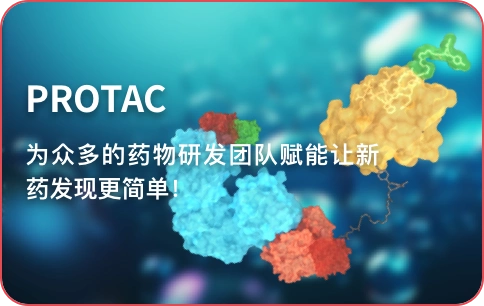
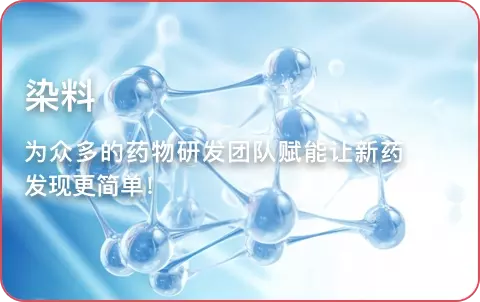






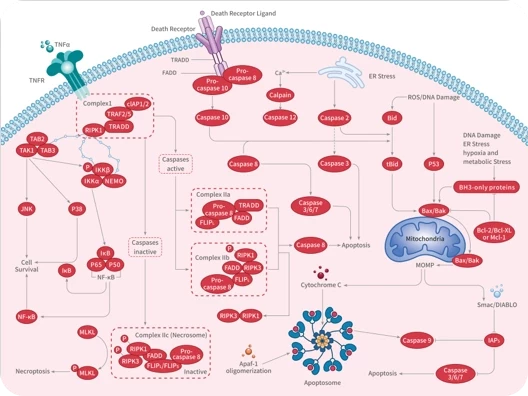
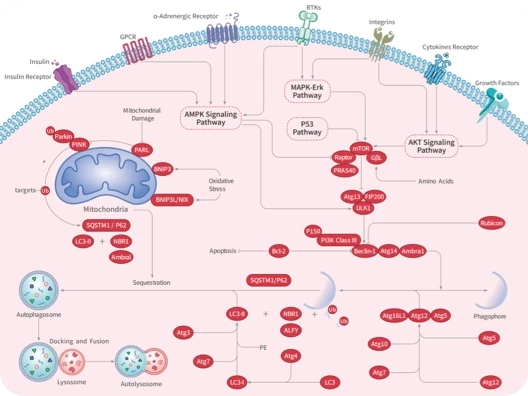

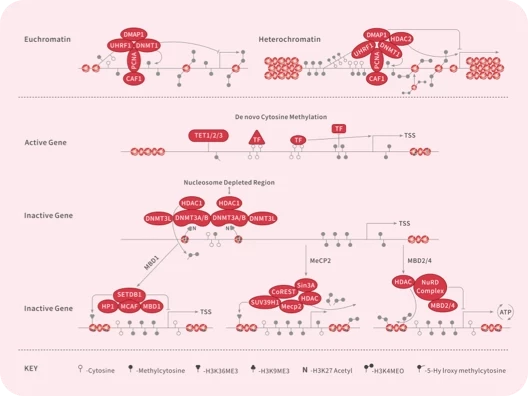
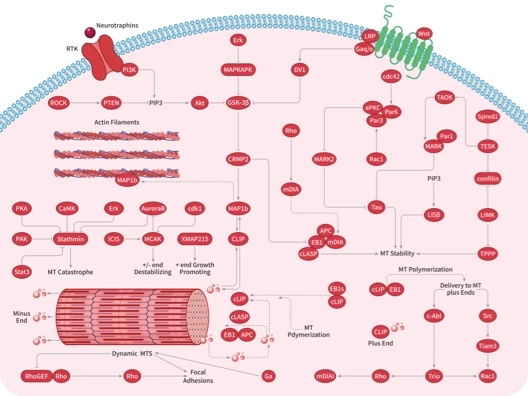
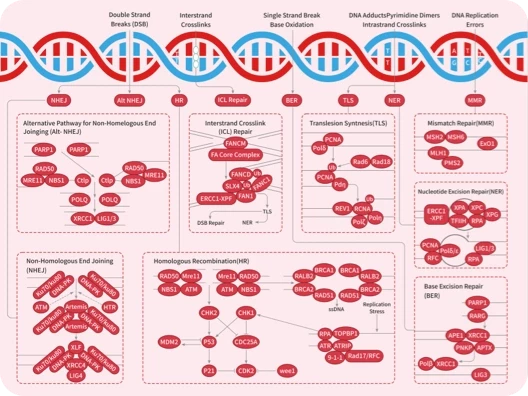
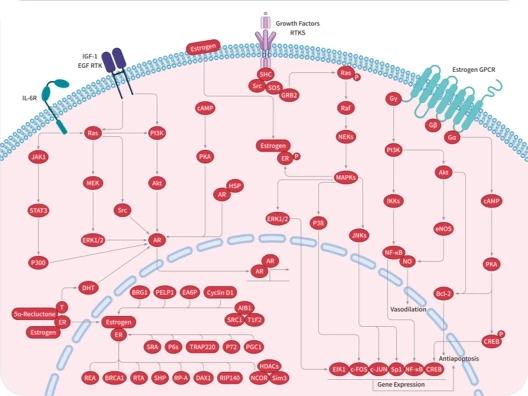
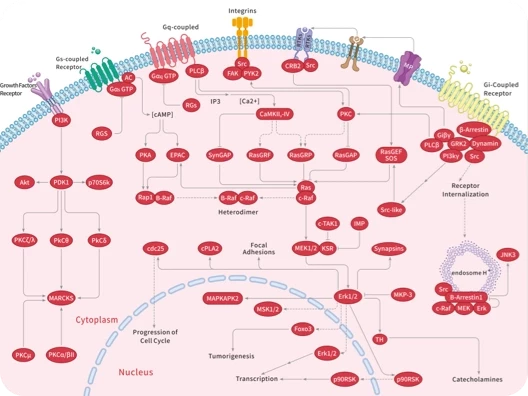
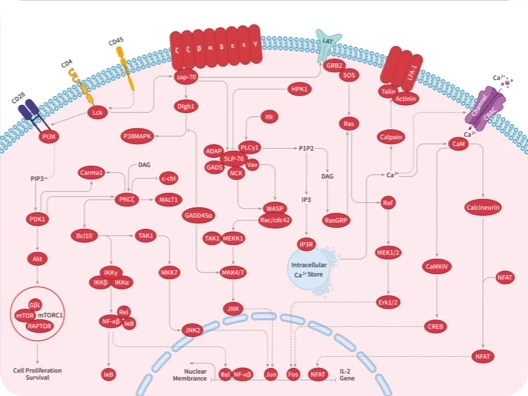
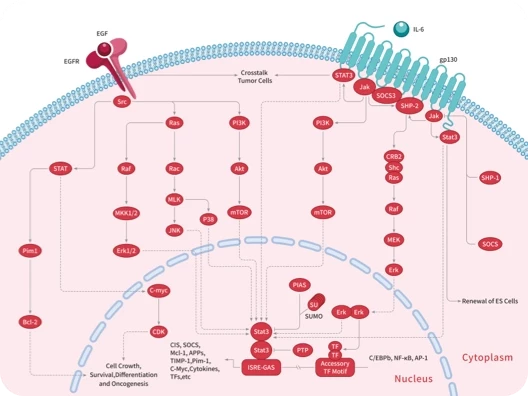
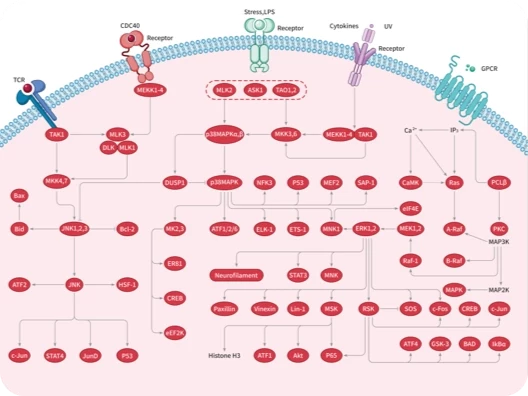
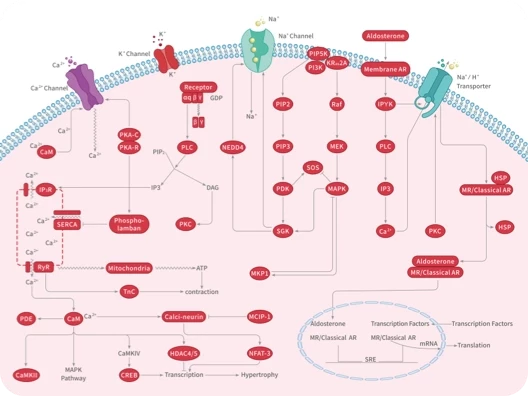
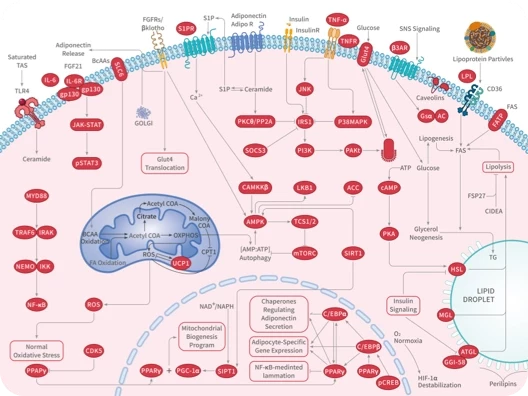
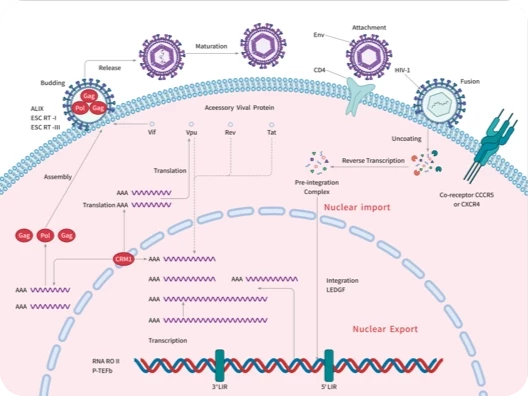

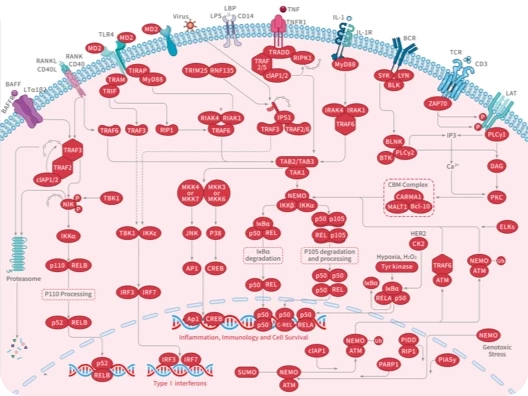
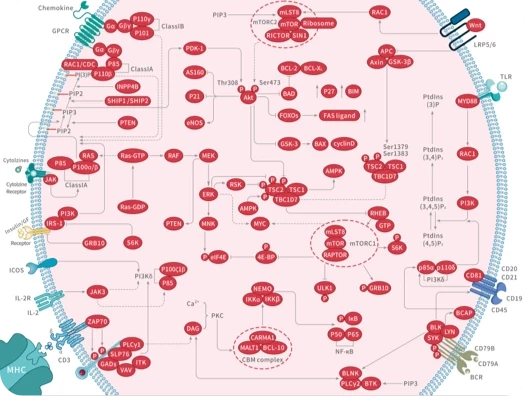
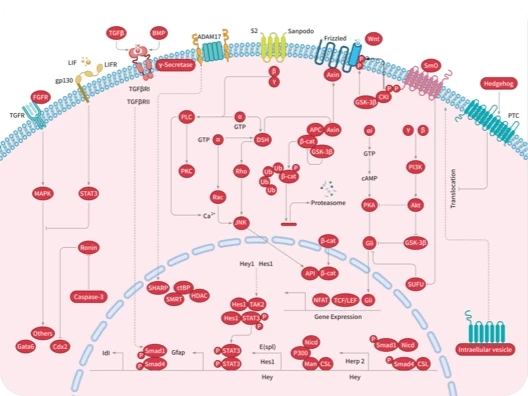
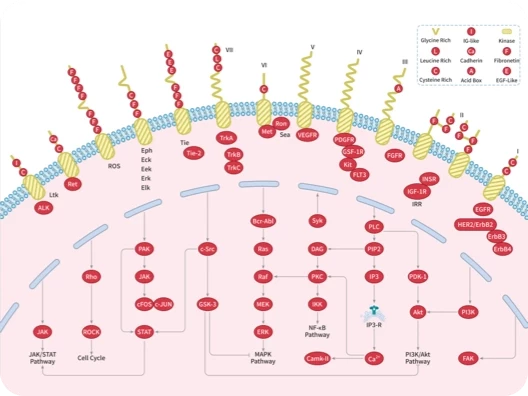
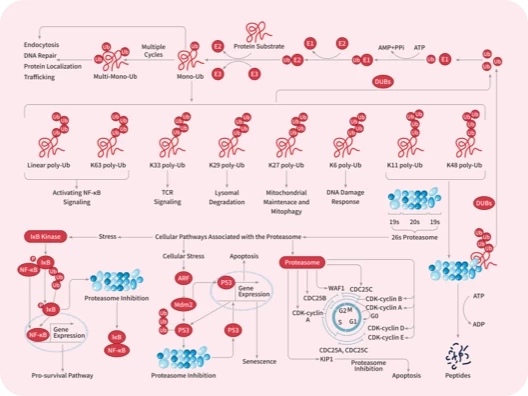


 |
|